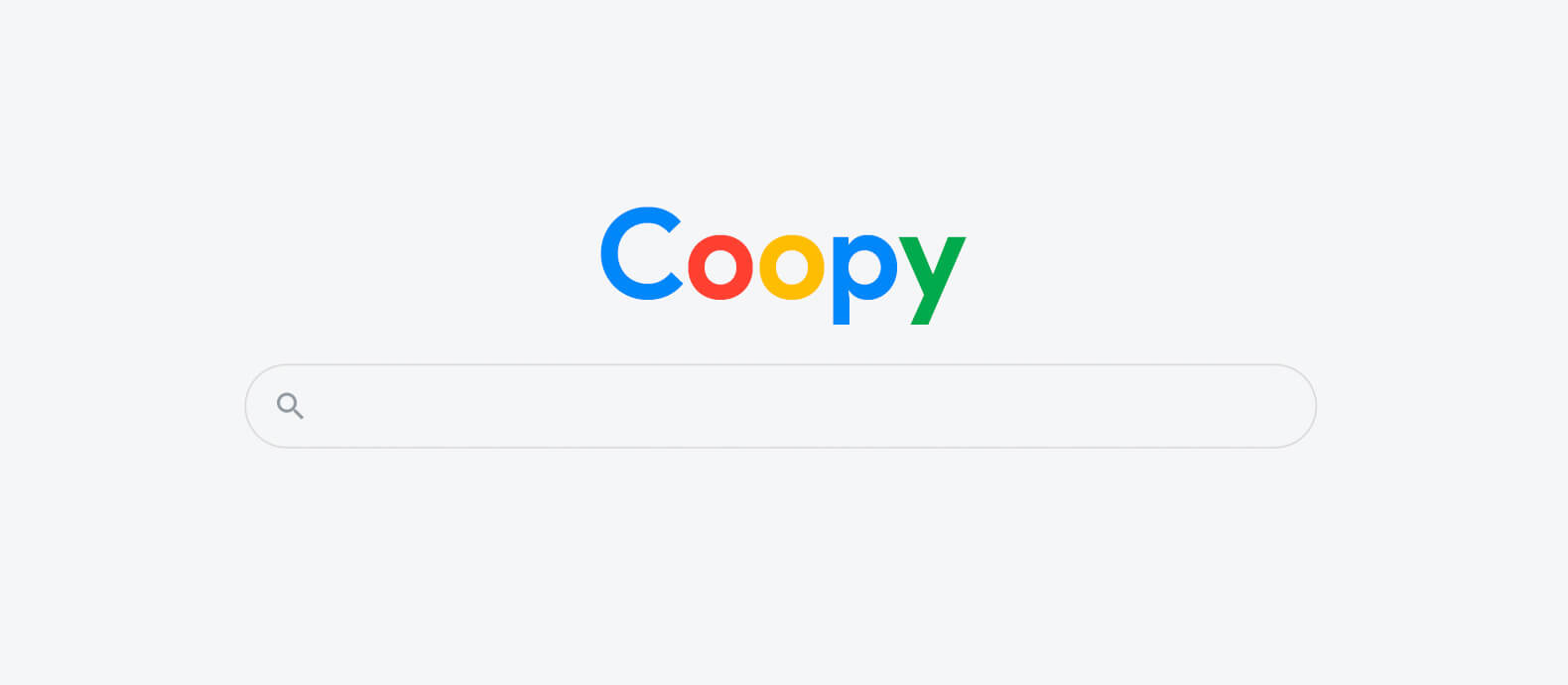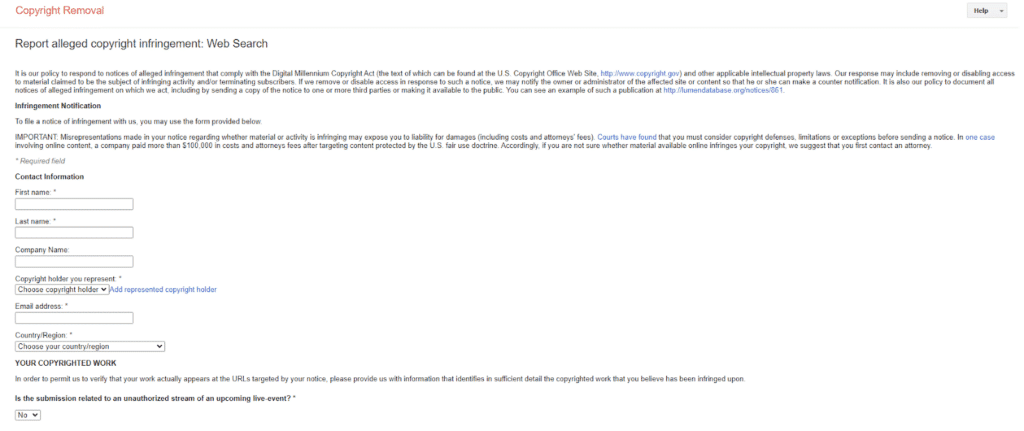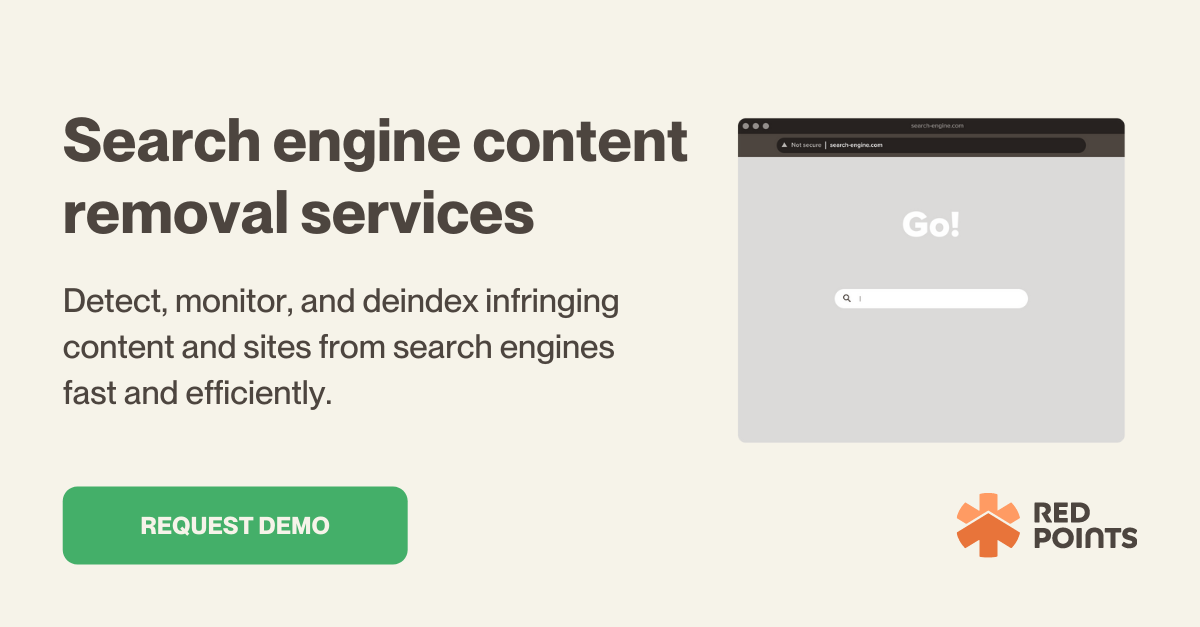
Table of Contents:
Last updated on: March 26, 2024
In today’s digital world, copyright infringement is becoming a more and more common issue. Whether you’ve come across photos you own being used by someone else on Instagram or trademark images being used for a fraudulent copy of your website, copyright infringement can have a massive negative impact on your business. Luckily, you can report copyright infringement through Google by filing a Google DMCA notice. If you’re unsure where to start, read on to find out how to easily navigate reporting copyright infringement.

As Google complies with the Digital Millennium Copyright Act, they regularly remove content from search results that have been reported for copyright infringement. Google often receives requests through its removal form, which they then review based on the data that has been submitted. A copyright removal request should be submitted by copyright owners/organizations if they believe a certain page or link contains infringing material.
While Google does remove content from their search engine as it’s their DMCA policy, it’s important for those reporting to provide all possible information. This includes where the infringement was spotted, proof that you own the material, and other details. This allows Google to fully review your copyright infringement report in a timely manner.
If the report for copyright infringement is valid, Google will delist the URL once they have completed their review of a valid copyright infringement report. Google also will check for other issues within the reported content.
When it comes to copyright infringement, Google follows the DMCA policy. This means they adhere to the federal law that protects copyright holders from online scammers. The material protected by Google’s DMCA policy includes copyrighted content, photos, articles, and other online content.
As Google doesn’t want to include web results that include infringing material, they carefully review removal requests to ensure any copyright infringement is removed from search results. In their web form, they ask for information that is consistent with the DMCA’s policy so that reporters can provide all relevant information. After reviewing, Google decides whether or not the material is copyright infringement, and removes it from search results if it is.
It’s important to note that when Google reviews reports of copyright infringement, they cannot remove the material from the actual web page. All submitted reports mean that Google will consider limiting, removing, or blocking access to it. While this content may still live on the website, users will not be able to access it through Google search.
A DMCA takedown notice is what you, as a content owner, might file if you or your company suspect copyright infringement. If you’re thinking about involving an attorney and skipping filing a takedown notice, it’s important to consider all your options. Reporting a copyright infringement through Google is the best place to start, as it’s not possible to sue someone without your content being registered with the U.S. Copyright Office.
When you file a DMCA removal request, Google will review it. If they deem that the material is, in fact, copyright infringement, they will take it off of Google so it no longer appears in search results. Those violating the Google DMCA policy will receive a takedown notice warning.
Sometimes, a takedown notice can be filed wrongly. This can happen if someone didn’t actually infringe on a copyright or has permission to use the copyrighted materials. When this happens, those who were filed against have the right to contest a takedown notice.
If you’re positive that your company is the victim of copyright infringement, you can report it through Google’s copyright infringement form. Google’s DMCA removal request form for copyright infringement is very straightforward. The form allows you to fill out all the necessary information, with standard questions that will then prompt you to fill out the information. This includes what Google product your request is about, what the issue is, and so on.

When reporting copyright infringement regarding a Google search, the required selection will be an intellectual property issue, as copyright infringement falls under this category. From there, you would select copyright infringement, and select what type of material your content falls under. The form will then prompt you to create a request with your information, information about the work, and the location of the materials.

Creating a request:

Filling out information about the content:

For the best results, a copyright removal request should have all the details necessary to have the materials removed. It’s crucial to provide where your copyrighted work is, as well as where it’s being used without your permission. While Google does a thorough review of each submitted copyright infringement report, removal is not guaranteed. If the report has been verified, the material will be taken down from web results instantly.
As Google receives over 2 million requests a day, it’s not always guarantee they’ll get to your case immediately. Their average processing time is around 6 hours, but it can take up to 14 days for Google to review your copyright infringement report. While you can check on your case through the Removals Dashboard, they will send you an email if they need more information or if the request is denied.
While the average processing can be as low as 6 hours, this depends on each unique report filed. This includes language used, amount of information, and complexity of the case. Ensuring Google has all the relevant information is essential when looking to get your case resolved as soon as possible.
Overall, the processing time for copyright removal depends on the completeness of the materials you’ve submitted, the specificities of your case, and Google’s current volume of reports. While Google will notify you with updates on your case, it’s always possible to check on the file you submitted through their dashboard. If those who are reported for copyright infringement are registered as website owners through Google’s Search Console, they will be notified of the content’s removal.
While it might be alarming to see your content used in an unauthorized setting, Google’s DMCA policy is set up to ensure your content is protected. Protecting your company’s content by reporting copyright infringement to Google is crucial, as stolen content is commonly seen ranking higher than the original content. This itself can hurt your company, and isn’t something you should—or always can—do alone. Red Points can streamline the content removal process when it comes to copyright infringement. Check out Red Point’s Content Removal Services to learn about how we can help.
